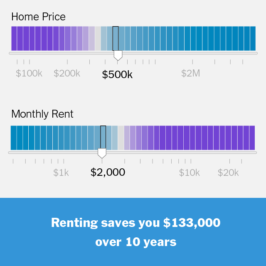In many ways, managing your money comes down to keeping track of numbers, and few figures are quite as important to your personal finances as your credit score.
For lenders, your score is a quick way to assess your creditworthiness. Those with the highest scores qualify for the most attractive rates on everything from credit cards to auto loans to mortgages. A lower score means you could pay much more in interest or not qualify for credit at all.
So what’s the ideal score, exactly? Financial institutions make it a little tricky to tell. Borrowers are rated on a scale of 300 to 850, and credit agencies generally break things down as follows:
- Poor: 300 to 579
- Fair: 580 to 669
- Good: 670 to 739
- Very good: 740 to 799
- Exceptional: 800 to 850
The average American has a score of 717, according to FICO, so if your score is higher than that, you can consider yourself not just “good,” but officially above-average.
At that level, though, you’re likely not getting the best offers. Luckily, you don’t need to get all the way to “exceptional” to get them either, says Ted Rossman, a senior industry analyst with Bankrate.
“Once you’ve hit the mid 700′s you’re good. To get the best rates [on credit and auto loans] the line is often 740 or 750,” he says. “It’s closer to 760 or 780 for mortgages. But the point is, you don’t need a perfect 850.”
How to optimize your credit score
If you’re a little short of the optimum score, it’s not the end of the world, says Rod Griffin, senior director of consumer education and advocacy for Experian.
“There is no need to panic over a below-average credit score,” he says. “It may act as a good wake-up call to take a closer look at your financial situation, but the good news is you can always work towards increasing your credit score over time.”
Here are three ways the pros say to do just that.
1. Check your credit report
Before you start trying to improve your score, you need to know what exactly is impacting it, says Griffin.
“First and foremost, you need to know what is in your credit report,” he says.
You can access reports from all three credit agencies by visiting AnnualCreditReport.com.
By analyzing your credit history, you can get an idea of what may be holding you back, says Rossman. You may even discover a quick fix.
“It depends what’s dragging you down. True, negative payments stick with you for seven years, but you could get errors corrected,” he says. “An easy fix is if it’s an error and not a legitimate late payment.”
2. Fix the factors that affect your score the most
When you get your score through FICO or one of the credit agencies, “you should also get a list of the risk factors from your credit history that are most affecting that score,” says Griffin. “By addressing those factors, you can improve your credit scores over time.”
The biggest one: paying your credit card off on time and in full each month. “Falling behind on payments has a quick and serious impact on your credit score,” Griffin says. “Payments must always be made on time to have good credit scores.”
You’d also be wise to pay attention to your credit utilization ratio, found by dividing your outstanding balances by your total available credit. If you run a $5,000 balance on a credit card with a $10,000 limit, for instance, your ratio is 50%.
To boost your score, credit experts recommend keeping your ratio under 30%, and ideally as low as 10%. That might mean cutting back on spending, asking your credit card company to raise your limit or opening a new credit card — as long as it won’t encourage you to spend more.
3. Add more good information to your credit history
Even if you have blemishes on your credit history, “you can offset them by filling up your report with good things,” says Rossman.
He recommends signing up for a service that can expand what gets counted in your credit report, especially if you have an otherwise thin credit file.
By signing up for Experian Boost, for instance, you may be able to get credit for on-time payments of rent, utilities, streaming services and phone bills. Or consider UltraFICO, which can help boost your score by sharing evidence of financially sound banking data with credit reporting agencies.
“You can also get on a parent or spouse’s card as an authorized user and piggyback off their positive payment history,” Rossman says. “There are things you can do — you just can’t be passive about it. If you actually follow through on some of these things, you can see meaningful change [to your score] in six months.”
Original article published Wed, Jun 19 20249:00 AM EDT by Ryan Ermey on CNBC.com






